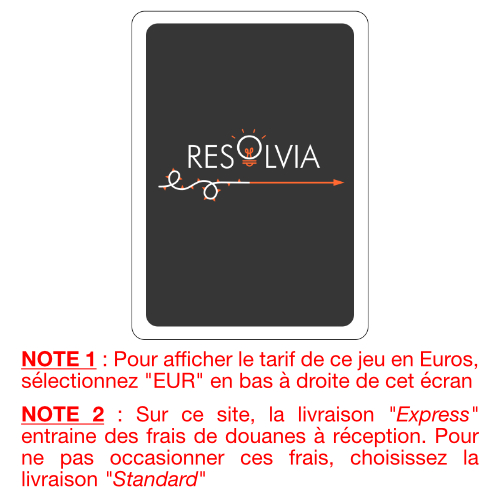Browse Designs At MarketPlace
This Week's Featured Designs
Check out this week's most popular designs viewed and sold on our MarketPlace.

Daily Signs Oracle
Daily Signs Oracle is a 36-card deck based on signs and symbolism in the man-made world. Each card has an image of an everyday item with a few keywords for interpretation. Using th...
More

Painted Memories Lenormand by Florence Levine NO KEYWORDS
Perfect for beginners and experienced cartomancers alike. The clean design works seamlessly for both simple 3-card draws and the full Grand Tableau spread.
Pure symbolism, no di...
More

RESOLVIA - Le jeu de cartes strategique (v1.1)
Jeu de cartes RESOLVIA pour denouer vos problemes avec l'approche de Palo Alto
More

BCS Inflection Point (Premium Plastic)
One set of HQ cards for BCS Inflection Point in premium plastic.
More

the softest shade oracle
92 card collage oracle deck with a soft aesthetic. does not come with a guidebook
More

Starting Points: Operationally Curious Questions
Curiosity reigns supreme in our complex and often complicated work worlds. Starting Points: Operationally Curious Questions ™ is a collection of operationally curious icebreakers...
More

Towards Relational Accountability
Towards Relational Accountability is a set of cards developed in the context of the Moving With Storms report based on the exercise 7 steps back and 7 steps forward/aside developed...
More

Hidden Waters Second EditionA
The Hidden Waters Tarot is a tarot deck that delves into the subconscious. Created by illustrator Ana Tourian, it is a system based on the famous Rorschach Inkblot Test. The Hidden...
More

Ifdawn Golden Tarot Especial
The Ifdawn Tarot is a recasting of the Rider-Waite deck, using an array of photo collage and Google DeepDream imagery. It also includes many of the varied correspondences detailed...
More
Newest Designs
See the newest designs added here which are all worth a mention.

Companion Cats Deck

COMBO SET EDITIONS 1ST & 4TH ANCIENT HEADS OF SPADES By SEAN ALEMAYEHU TEWODROS GIORGIS

Blighted Moon Playing Cards

Angelic Wisdom Oracle Cards
Top Designers
Our top 5 designers based on popularity, most sales, designs and activity.

*CyberNorth*
Our card games are simple, fun, and educational, most of them in Swedishsigned to boost your cyber security awareness

Jorell Canuel
A shop for divination tools. Specifically Oracle cards and Lenormand cards.

Tomomi
Lenormand Card Shop

Null Signal Games
A non-profit organization dedicated to continuing the best game ever made.

Alpha Lyr (Anna)
The 3 decks here are the result of my personal immersion into studying RWS, Thoth and Tarot of Marseille.
Popular Designs In Different Categories
Tarot Designs

Multi-inverted Thoth tarot in the box

Third Eye Tarot

Red Fairy Tarot

F. Di Milano Tarot
Cardistry Designs

Pamela's Tribute Tarot

MAJI THE PRIESTESSLLC

1909 Roses & Lilies WITH BOX

steel
Lenormand Designs

Canuel Oracle Deck with PDF booklet (Standard Tarot Size)

Hawaiian Lenormand

Mini Monster Lenormand

Guidance with Natija vol 1
Browse by product categories:
Search available designs based on a specified product.